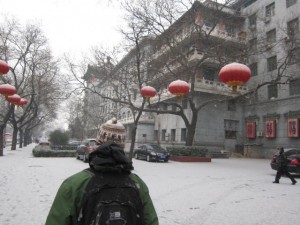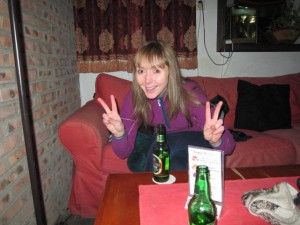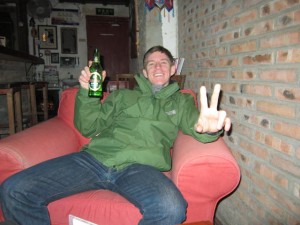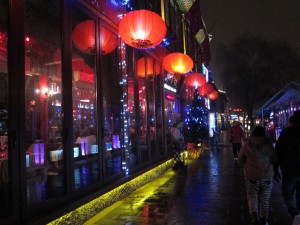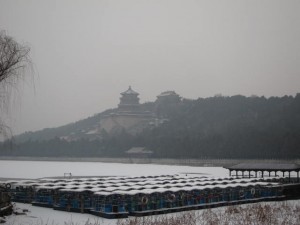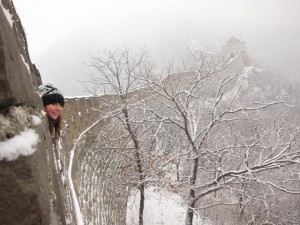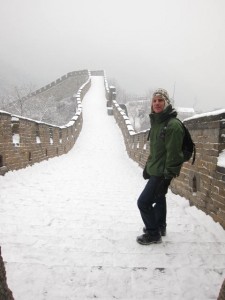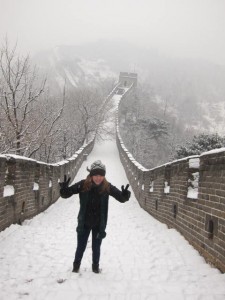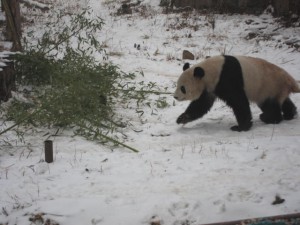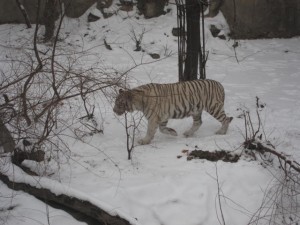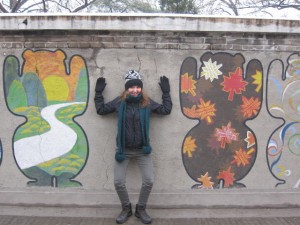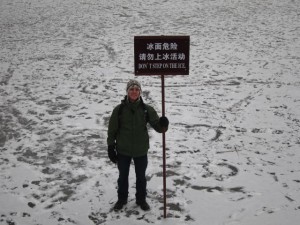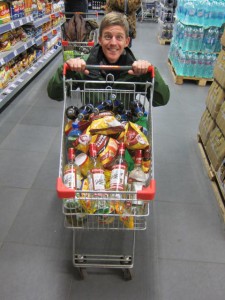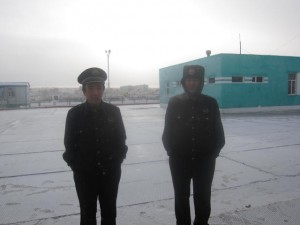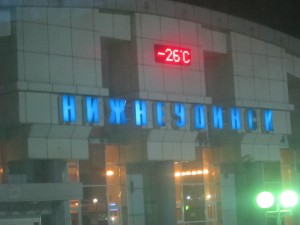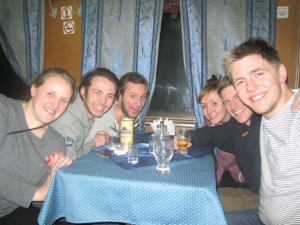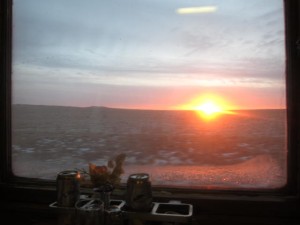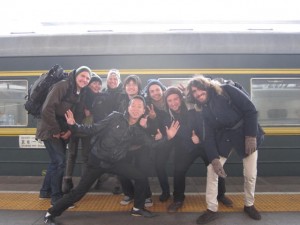A shower and a shave and we felt human again after 7 days on the train. We set off to explore Beijing.
We were a little underwhelmed at first. We found ourselves impervious to the city’s charms, dulled as they were through the bitter cold (-6 C) and felt a little like we were just going through the motions: Forbidden City, a collection of almost identical temples – done. Tiananmen Square, largest public square in the world and not a whole lot else – done. But gradually we warmed to the place (not literally, its still bloody freezing); we discovered the view from the pagoda at the top of Jingshan Park, the stunning grounds and waterways of the Summer Palace, saw a giant panda and a white Bengali tiger at the zoo (the polar bears had the day off) and Beijing began, with its nighttime neon twinkliness, Chinese lanterns and affable street vendors, to win us over.
Its also surprisingly easy – far easier than Moscow – to get around and communicate. And it scores well on the Beer Price Index, with a pint averaging about £2 but extra bonus points for our hostel selling a large bottle of beer for 30 pence! Sa-weet.
For a city of 20 million inhabitants, it seems remarkably calm, and nowhere more so than in the hutong. Hutong is the name given to these warrens of tranquil alleyways and one-storey grey brick buildings (a little like upmarket slums) that give the city its charm. The government is busily deconstructing them in the name of modernisation but enough of the residents stubbornly remain that the hutong still, for now, exist.
One night we decided to take a short-cut home through the hutong. We were lost almost instantly, the hutong span us around and spat us out about 2 miles from where we needed to be. It was a long trudge home.
Our hostel (best Hostel in Asia 2009) had a lovely courtyard setting and we were almost the only people there. The only other guest was a hypochondriac Canadian TV presenter called Brandy, who accosted us each night to explain all her current ailments and regale us with stories of glorious illnesses past. She was alright though.
You don’t come to Beijing and not see the Great Wall though do you?
We decided to forego the over-priced day trips to the Wall and make our own way there using public transport. This meant a bus from the city to Huarou, 60k away. Once there we bartered over a taxi which turned out to be a smiley maniac with a beaten up car. Thick snow was falling and the roads were treacherous, but nobody told our driver. Each time he swerved to avoid other vehicles that had fallen prey to the ice we gripped the door panel and silently wished we had seat-belts.
We ignored all the shouted exhortations that the Wall was too slippery and we should take the cable car (obviously more expensive) and started up the hundreds of steps to the Great Wall. Once at the top we found that there was nobody as far as the eye could see (admittedly not very far – it was quite foggy) and clambered over this UNESCO world heritage site, this wonder of the world, completely alone.
We strolled between the watch towers, and from each one you could see the snow-covered battlements reaching up or down into the mist. It was amazingly peaceful. Wonderful.
The Wall as a defensive structure was arguably a failure – Gengis Khan’s armies stormed it, the British just ignored it and turned up by boat, and the Japanese simply flew over it – but it is still a sight to behold.
We have had just about enough of the cold now (yeah, by the way if it looks like we’ve been wearing the same clothes in all the photos its because we have, we only have limited warm clothes!) and tonight fly to warmer climes – Yunnan Province.
.

